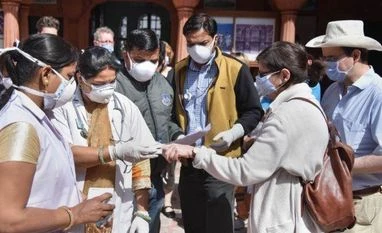The World Health Organization (WHO) has declared Coronavirus a pandemic on Wednesday. But the question is will this declaration bring any change in the ways the nations are working to combat the novel coronavirus infection?
But first, what is a pandemic?
A WHO website defines pandemic as a “worldwide spread of a new disease.”
This means, irrespective of how deadly or severe the disease or infection is, to become a pandemic, it has to spread far enough around the world.
The last time a pandemic occurred was with H1N1 or Swine flu in 2009, which claimed hundreds of thousands of lives across the globe according to experts.
In case you are thinking about the 2002-2003 SARS outbreak, 2014-2016 Ebola outbreak and the 2016 Zika outbreak were not pandemics they did not impact as many people as Coronavirus despite spreading in more than one country.
Now, speaking of Coronavirus, so far, the number of cases in over 100 countries around the world has risen to 124,000, with over 4,500 deaths. This includes a jump in fatalities in Iran and Italy in particular, according to an AFP tally.
China remains the worst-affected country with more than 80,000 confirmed cases and over 3,000 deaths.
WHO Director-General Tedros Adhanom Ghebreyesus told reporters in Geneva "We are deeply concerned both by the alarming levels of spread and severity and by the alarming levels of inaction."
Now, what next?
Tedros said the warning should not be taken by countries as a signal to give up on efforts to contain the virus with methods like contact-tracing.
"We should double down, and we should be more aggressive," Tedros said, adding: "We are not saying the world should move from containment to mitigation... the blended approach should continue.
"It will be a mistake to abandon the containment strategy," he said.
In view of this, US President Donald Trump has suspended all travel from Europe to the US, except the United Kingdom.
On the other hand, Italian Prime Minister Giuseppe Conte, widen steps already taken in the rich northern region of Lombardy and parts of neighbouring provinces, restricting movement and banning public gatherings.
This means, for at least the next three weeks, people have to stay at home if possible, move only for reasons of work, health needs, or emergencies. Anyone travelling will have to carry a document declaring their reasons, and schools and universities will remain closed.
Outdoor events, including sports fixtures, have been suspended, while bars and restaurants will have to close from 6 pm. Shops are allowed to remain open as long as customers maintain a minimum distance of a metre between each other.
In the wake of the clampdown, neighbouring Austria said it would deny entry to people arriving from Italy, while British Airways cancelled all flights to and from the country. India, too, suspended travel visas from March 13 to April 15.
)